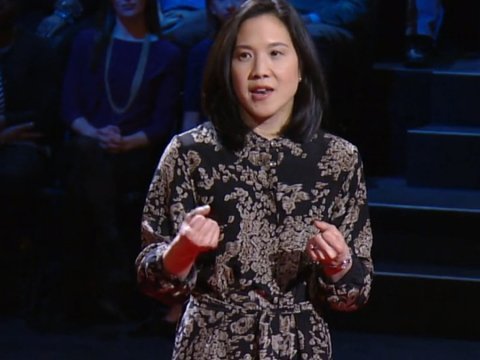ThereŌĆÖs a .00006% Chance of Building a Billion Dollar Company: How This Man Did It
Eric Nakagawa stashed this in business
Stashed in: Founders, 106 Miles, Luck!, Startup Lessons, Innovation, Awesome, startup, So you're saying there's a chance....
Saying youŌĆÖre going to do a startup or you want to be a ŌĆśserial entrepreneurŌĆÖ has about as much meaning as saying ŌĆśIŌĆÖm going to jump off a plane.ŌĆÖ┬Ā
ThatŌĆÖs the fundamental premise of how to think about building a business: figure out what you donŌĆÖt know and then know it.
Cold calling is something thatŌĆÖs pretty critical, and something you canŌĆÖt be afraid to do if youŌĆÖre dealing with customers. You have to do it to understand what your customers want.
Total transparency about whatŌĆÖs working and whatŌĆÖs not makes it clear to everyone how you are going to succeed.
Innovation is the only sustainable competitive advantage a company can have.
WeŌĆÖre facing global stagnation in economic development, and innovation is the only way out.
Culture is the only sustainable competitive advantage a company can have.
Innovation is a part of culture. Or not.
Starting a company is not a decision to make based on financial outcome:
Just look at the numbers, he says: ŌĆ£ThereŌĆÖs a 0.00006% chance of building a company that will grow to be worth more than a billion dollars. Even if you do raise money and sell a company or take it public, your median time to doing that is probably 49 months. Assuming there are three founders, your median expected payoff would be $300,000 each ŌĆö thatŌĆÖs the equivalent of $73,000 a year. And the probability of making nothing is 67%. So if your motivation for doing a startup is financial reward, youŌĆÖre better off going to Google, a hedge fund, choosing a career with stable income potential.ŌĆØ
Get rid of luck:
ŌĆ£When you say you got lucky, you got lucky because you didnŌĆÖt know what was going to happen. The corollary is, if you know whatŌĆÖs going to happen, then there is no luck. ThereŌĆÖs also no uncertainty and no risk,ŌĆØ Friedberg says. ŌĆ£In this context, shouldnŌĆÖt your objective be to always know whatŌĆÖs going to happen? To always remove the unknowns?ŌĆØ
ŌĆ£ThatŌĆÖs the fundamental premise of how to think about building a business: figure out what you donŌĆÖt know and then know it.
ŌĆØ┬ĀIf you make this your goal, at the end of the day youŌĆÖll be left with truth and facts. YouŌĆÖll know whatŌĆÖs going to happen and how to achieve what you want. This is, of course, an ideal, but one worth striving for. ŌĆ£Every business has some degree of inherent risk,ŌĆØ Friedberg says. In fact, thereŌĆÖs a lot you probably donŌĆÖt know. A brief sampling:┬Ā
- Where is your market headed?┬Ā
- What do your competitors have waiting in the wings?
- Will people buy your product? Can you sell it at a particular price point?
- Can you keep your operating costs low enough to sustain profit margins?
- Are you actually adding value to peopleŌĆÖs lives? Will they come back for more?
- Can I recruit the engineers I need to build an even better product?┬Ā
ŌĆ£These are only some of the risks and uncertainties when youŌĆÖre in the early stage, but the more of those you can identify, the easier itŌĆÖs going to be for you to take them off the table,ŌĆØ he says. ŌĆ£Identify the unknown. Mitigate the unknown. Only then can you enable the outcomes you want, and thatŌĆÖs how you increase the value of your company.ŌĆØ
There are a lot of ways to bust open unknowns. Start with an ever-growing list of questions in the right-hand column of a spreadsheet and design tactics to move them into the left ŌĆśknownŌĆÖ column. Ask your advisors and investors and customers the right questions, build things to test and be scientific and intentional about how you deploy them to your users.┬Ā










2:25 PM Oct 08 2013